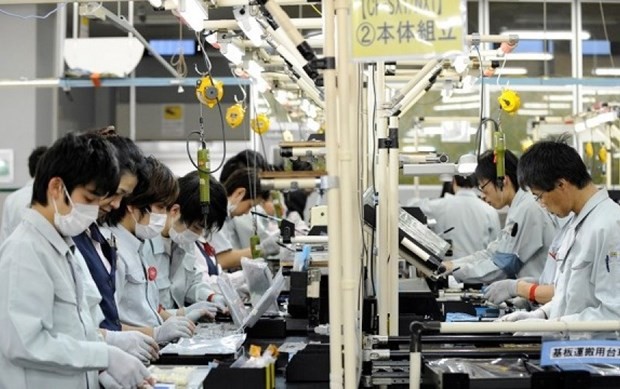Improving qualifications of guest workers and developing foreign labour markets that suit Vietnamese labourers' standards and skills have been considered as key tasks in 2024 in order to stepping up the sending of labourers to work abroad.

According to the Ministry of Labour, Invalids and Social Affairs (MoLISA), in 2023, the number of Vietnamese labourers sent to work abroad under contract reached its peak with 155,000 people, 29 percent higher than the year's plan and marking an increase of 8.55 percent compared to 2022.
Currently, there are about 650,000 Vietnamese guest workers in 40 countries and territories in the world, including Japan, the Republic of Korea (RoK) and Taiwan (China), among others. The number of Vietnamese guest workers has increased in European countries such as Hungary, Greece, Poland, Slovakia and Croatia.
Deputy Minister of Labour, Invalids and Social Affairs Nguyen Ba Hoan said that the Party and the State have always paid attention to sending Vietnamese labourers to work abroad. It is a significant and long-term strategy, helping to build a high-quality workforce for the cause of national construction in the period of industrialisation and modernisation. Vietnamese guest workers have also helped to strengthen cooperative relations with other countries in the world. In many labour markets, Vietnamese workers are playing an important role in the foreign workforces.
Besides, Vietnamese guest workers send home about US$3.5-4 billion in remittances each year, contributing to the country's socio-economic development while helping their families to have a better life.
Recently, MoLISA has announced a plan to recruit labourers to work in the RoK under the Korean Government's Foreign Worker Licensing Program (EPS Program) phase 1 in 2024 with an expected number of more than 15,000 people. Other labour markets such as Japan, Taiwan (China), Malaysia, and Singapore also need to recruit large numbers of workers. Many other countries like Australia, Germany, and Canada are also lacking skilled human resources in several areas including social security, nursing, agriculture, construction, and mechanics, among others.
Besides the positive results, the sending of Vietnamese workers to work abroad has also faced many difficulties and challenges, including high costs of working abroad; limited management and citizen protection for Vietnamese workers in foreign countries and territories, poor capacity of some organizations and businesses to send workers to work abroad, among others.
According to experts, to meet the increasing requirements of labour exports, it is necessary to closely monitor labour selection and training processes of enterprises with focus on linking businesses with vocational schools to select and train quality labour resources.
MoLISA revealed that in 2024, the ministry will continue to promote and improve the quality of sending Vietnamese labourers to work abroad under contracts while increasing information and guidance for businesses to proactively train labour resources, fostering the training of vocational skills and foreign language skills for workers before sending them to work abroad.
























